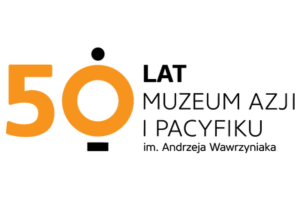Women, Life, Freedom (Jin, Jiyan, Azadî). Kurdish women’s work through the eyes of Kurdish female photographers
12.10.2023 - 28.01.2024
Jin, Jiyan, Azadî. Xebata jinên kurd ya bi çavên wênekêşên jin yên kurd
With the title referring to the slogan of Iran’s recent revolution, this photography exhibition follows-up on the exhibition Jin, jiyan, azadî (Women, life, freedom) – daily life and social involvement of Kurdish women in Kurdistan and the diaspora organized by the Asia and Pacific Museum in Warsaw in May 2021. However, it is certainly the first photography exhibition of its kind. It reveals the different meanings of the slogan for Kurdish women and focuses on a largely overlooked dimension of their lives. Much of Kurdish reality of the 20th and 21st centuries, has remained largely outside of the global gaze due to its marginalized position in the border areas of four nation-states. When Kurds and Kurdish women are portrayed, this is frequently in a stereotypical manner, as victims of war, (domestic) violence, or as guerrilla fighters, often by foreign photographers. Instead, this exhibition opens the way for a different depiction of Kurdish women’s action and agency, by focusing on their working life as portrayed by Kurdish female photographers.
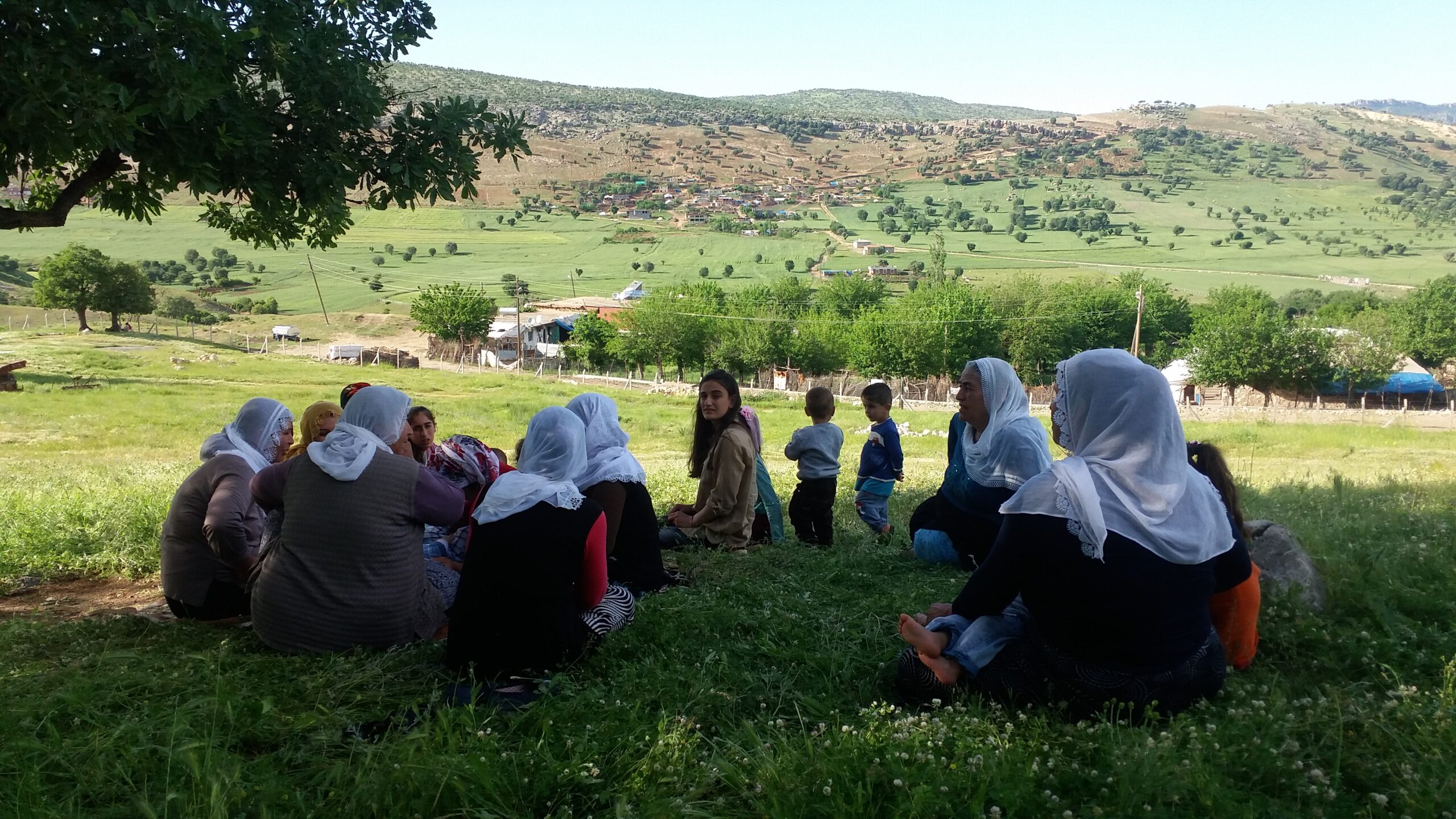
(5/5)
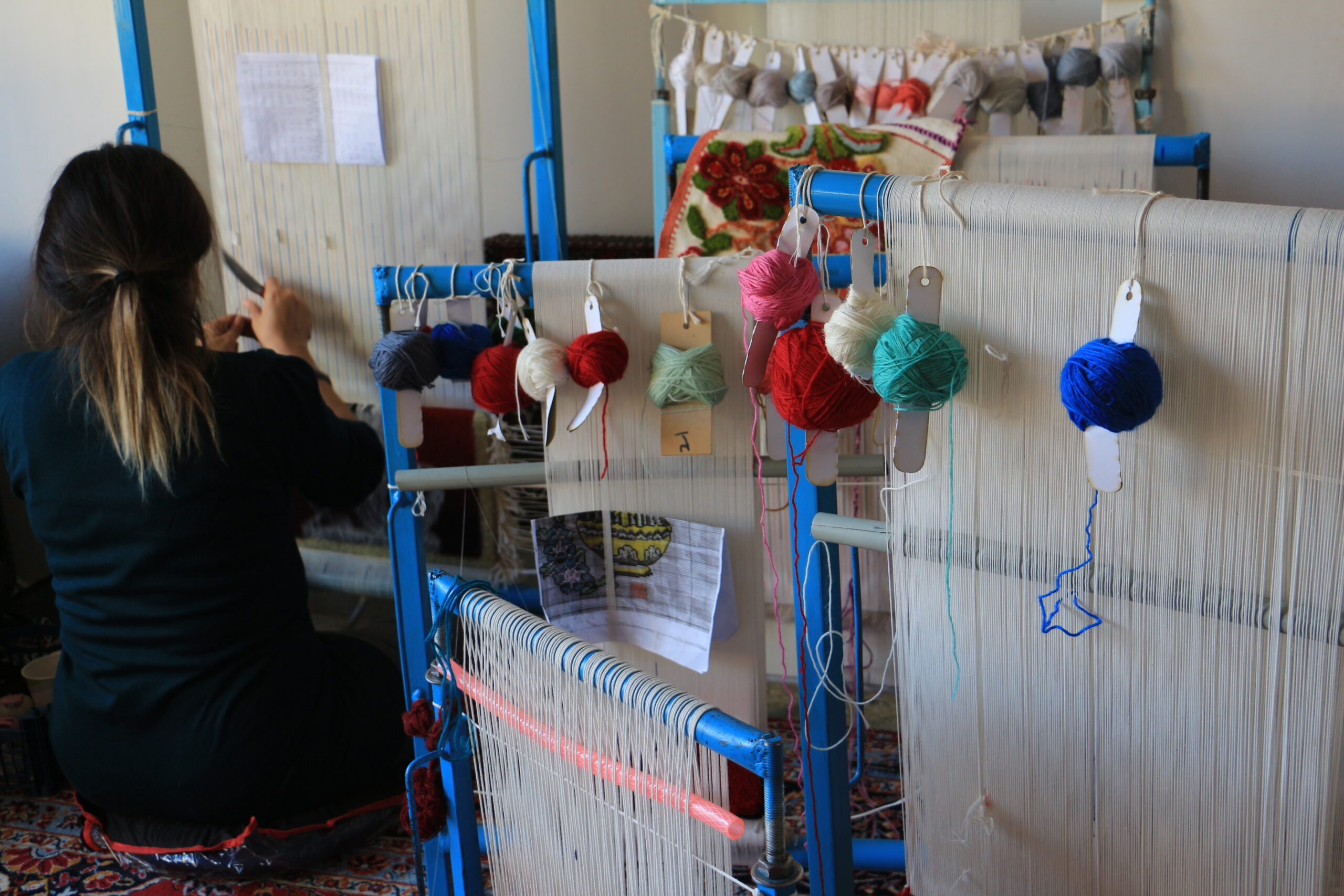
(1/5)
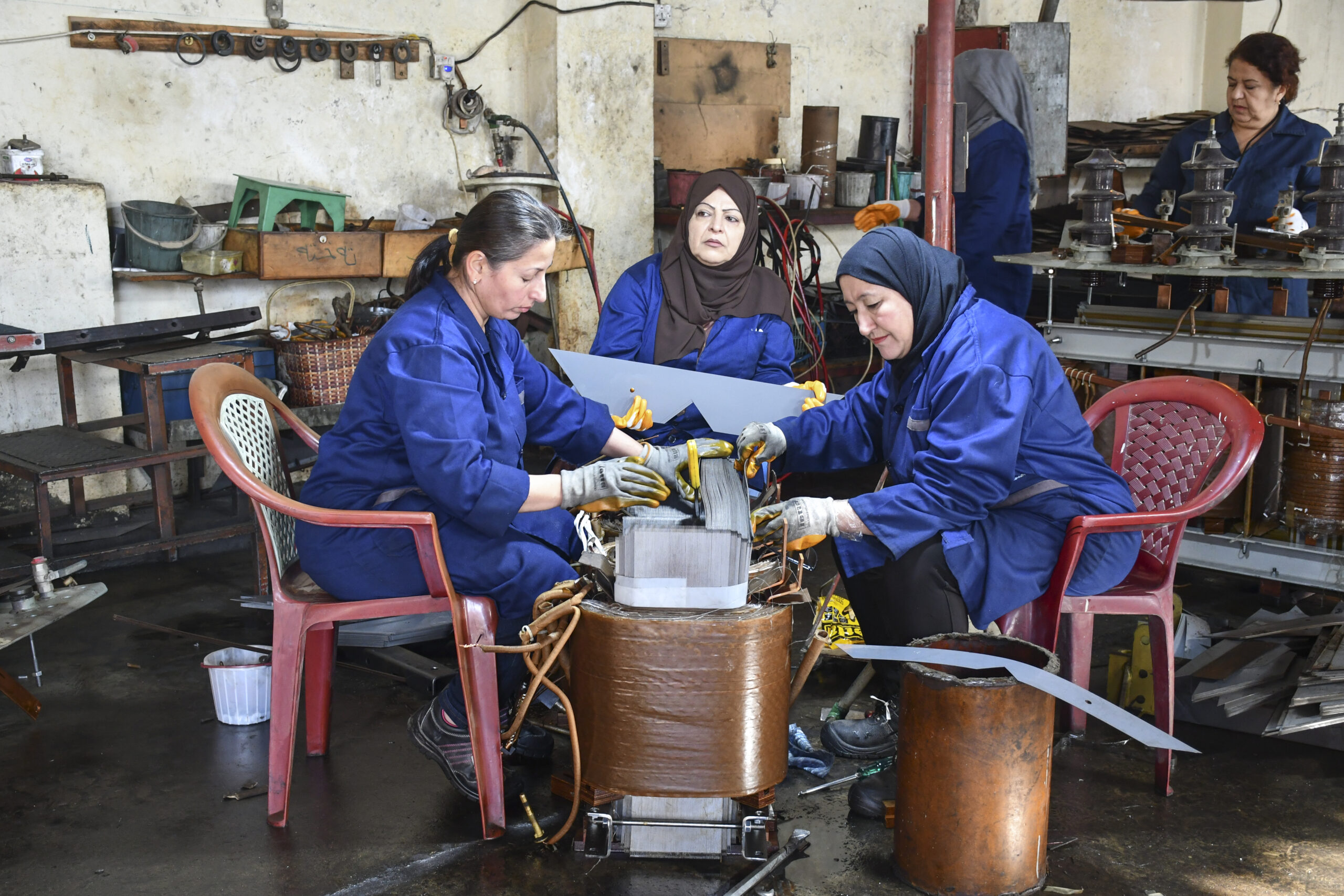
(2/5)
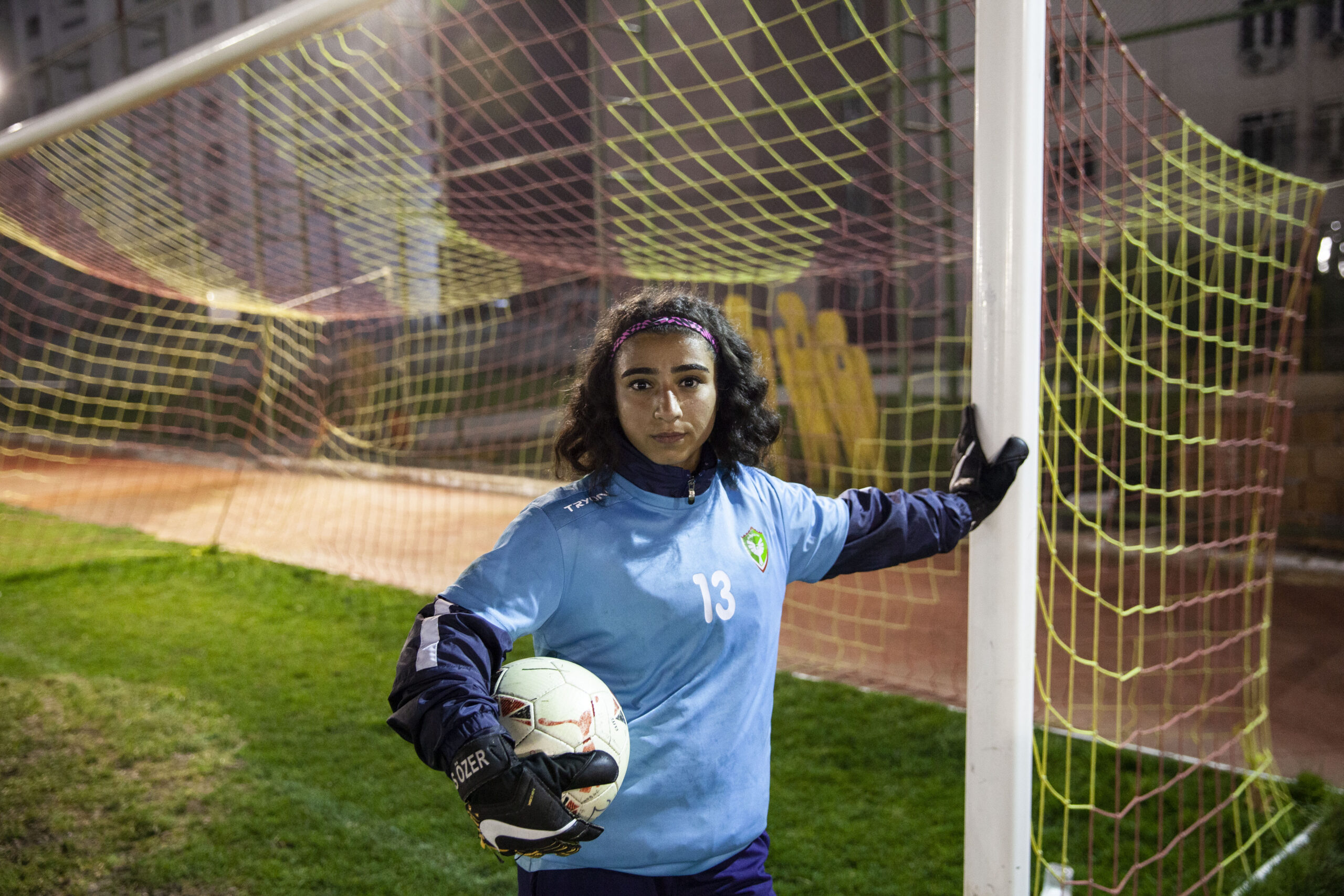
(3/5)
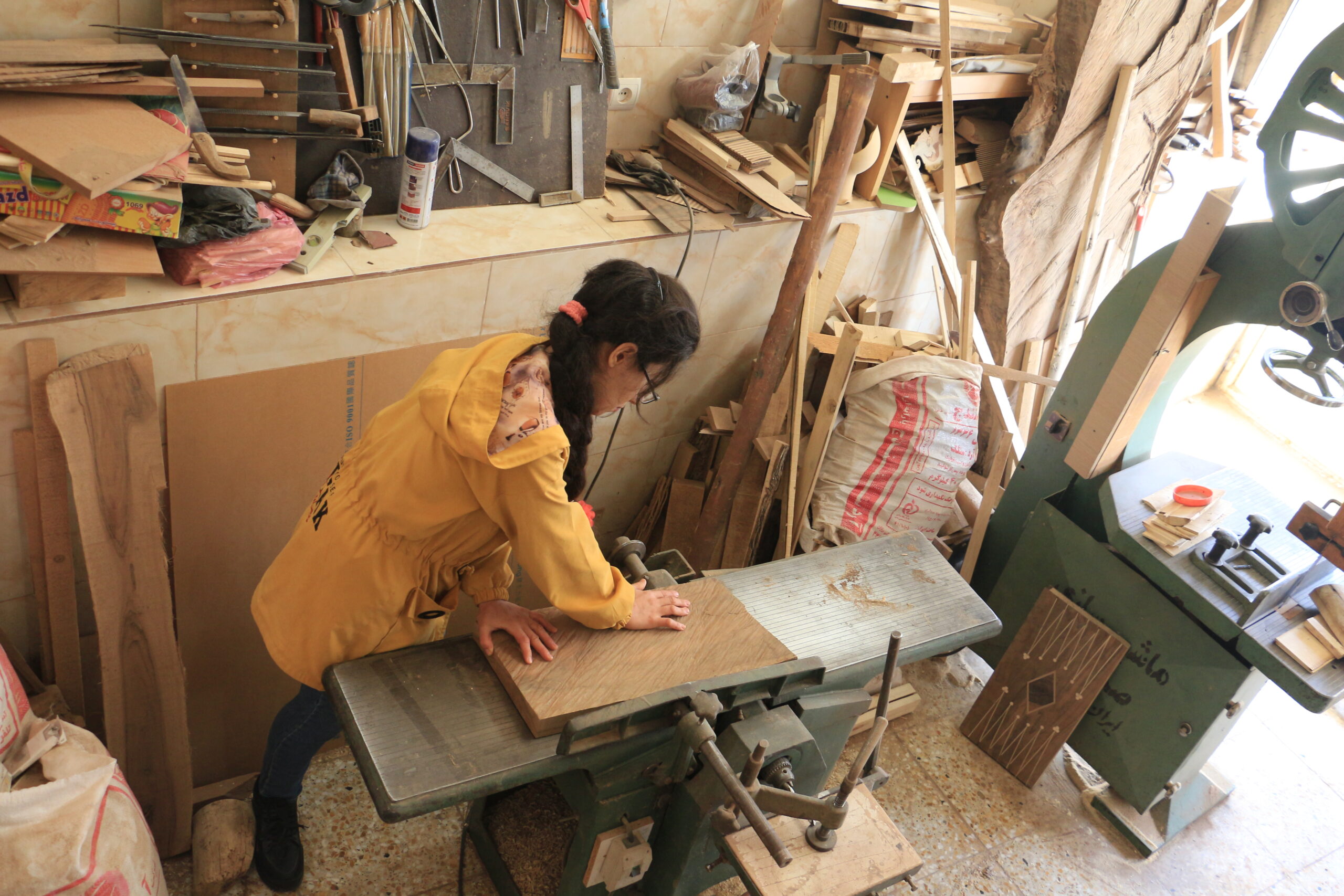
(4/5)

(5/5)

(1/5)
- 1
- 2
- 3
- 4
- 5
The exhibition shows women from all age groups and all Kurdish areas in a variety of professions, paid or unpaid: from beekeepers to political leaders, from kickboxers to lawyers, from seasonal laborers to bobcat drivers. Women are shown in their work contexts, which can be the home, the land, and the field, and at other times the factory, government office, or laboratory. In some cases, the pictures break with conventional photography of ‘showing the real’, and instead show a staged performance of women and work, therewith blurring the boundaries between fact and fiction. The pictures also show continuity in some traditional professions, such as henna production, herb collection and tattoo making, done by the elderly but continued by the younger generation.
All the pictures were made by Kurdish women photographers who were asked to freely elaborate on the theme “professional life of Kurdish women”. By showing this under-represented side of women’s lives in Kurdistan, the photographers give an artistic response to existing archival, news and research collections (for example Kurdistan Photolibrary by Chris Kutschera, or Kurdistan in the shadow of history by Susan Maseilas).
Women’s positions are subject to shifts, negotiations, and contestations. In autumn 2022, all over Iran, women and men mobilized in the largest protest action of recent times, protesting against the strict laws limiting women’s lives. It started with the arrest of Jîna (Mahsa) Amini, a Kurdish woman from Saqez who was imprisoned and died as a consequence of her arrest on the 16th of September 2022. In the demonstrations that followed her death, the slogan Women, Life, Freedom, became the outcry of the revolution. This is originally a Kurdish slogan, used to promote the Kurdish military struggle as well as political and social participation in the societies of Turkey, Iran, Iraq and Iran. In this exhibition, we draw attention to another side of Kurdish women’s lives: next to being active in (organized and unorganized) resistance, many also have an active professional life.
Women’s professional life often implies claiming women rights. Even if working outside the home does not automatically bring women the economic independence they desire, for example due to low salaries, it can enhance women’s rights in other ways; by finding new ways to develop women agency, by making women more visible in public spaces, and by encouraging solidarity and challenging the entrenched dehumanization of women: their working lives make visible their intellectual and professional development which the patriarchal environment often tries to deny them. What follows is also the reconsideration and revaluation of traditional skills and housework done by mothers and grandmothers, who become regarded as an inspiration and support in facing modern challenges. Therefore, the exhibition does not only highlight transformations but also the close relationship between, and continuity of, traditional and modern Kurdish worlds.
Both exhibitions are organized in the scope of the ALCITfem research project, a transnational and interdisciplinary project conducted by ten researchers from institutes in Poland and Norway. ALCITfem is funded by Norway Grants and the NCN National Science Centre of Poland. The Asia and Pacific Museum in Warsaw is one of its partners. (ALCITfem = Activism and Its Moral and Cultural Foundation: Alternative Citizenship and Women’s Roles in Kurdistan and the Diaspora).
Organizers:
The Asia and Pacific Museum in Warsaw
Section of Kurdish Studies of the Jagiellonian University in the scope of the ALCITfem project
